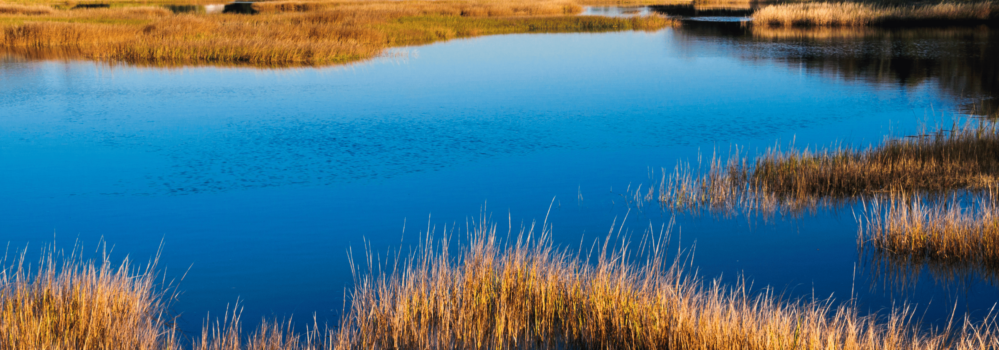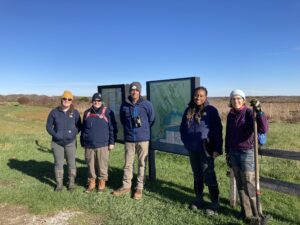
A Case Study in Salt Marsh Restoration
Salt marshes are vital ecosystems, found all across the coastal United States, that provide numerous benefits. They capture carbon, improve water quality, minimize erosion, and provide a home to many species of birds, fish and other wildlife.
Unfortunately, a number of anthropogenic factors are threatening these ecosystems, including water pollution, rising sea levels, and the introduction of invasive species. As a vulnerable ecosystem, their restoration must be a priority.

Mass Audubon, in cooperation with several local organizations, and with funding from the SNEP Watershed Implementation Grant (SWIG) through the U.S Environmental Protection Agency (EPA), is working diligently to restore the salt marshes of Allen’s Pond in Wareham, MA. This will have positive impacts on other waterbodies such as nearby Buzzards Bay.
Tom Ardito, the Director of SNEP Watershed Implementation Grants at Restore America’s Estuaries, reflected on the success of the project. “RAE is happy to support Mass Audubon’s Allen’s Pond project in partnership with EPA,” he said. “We believe that this integrated approach salt marsh and upland restoration will serve as a model for coastal habitat restoration throughout Southeast New England and beyond.”
Over the past several years, Mass Audubon has engaged with local volunteers to revitalize the marsh. Since 2020, they have restored surface drainage channels to the marsh, leading to the recovery of acres that had lost vegetation due to rapid sea level rise. In upland areas adjacent to the marsh, they have removed invasive plant species such as Phragmites, Oriental Bittersweet, Japanese Barberry, Autumn Olive, and Honeysuckle. Those plants were replaced by over a dozen native plant species, such as Butterfly Weed.
This work has created a healthier salt marsh, and improved habitat for the Northern Diamondback Terrapins, an endangered species of turtles, to return. The restored habitats will be in full bloom by Spring of 2023.
Gene Albanese, a Senior Conservation Ecologist with Mass Audubon, shared that “SNEP’s support of our saltmarsh restoration projects at Allens Pond and Great Neck Wildlife Sanctuaries has been integral to working with our partners and community to advance this impactful and important work across Buzzards Bay.”
In addition to restoration, Mass Audubon is working to raise awareness about coastal ecology and increase the accessibility of the area by leading tours and educating local students. They logged over 500 volunteer hours and have held 33 events since 2021, reaching over 1,000 people.
Click below to check out their excellent website where you can see great photos and maps, and learn more about this project.
